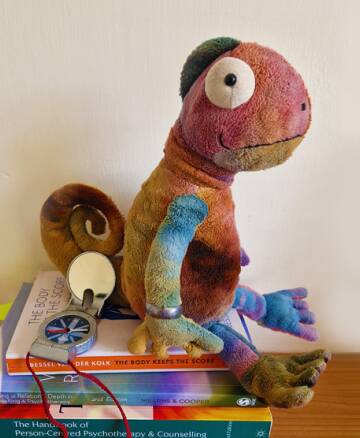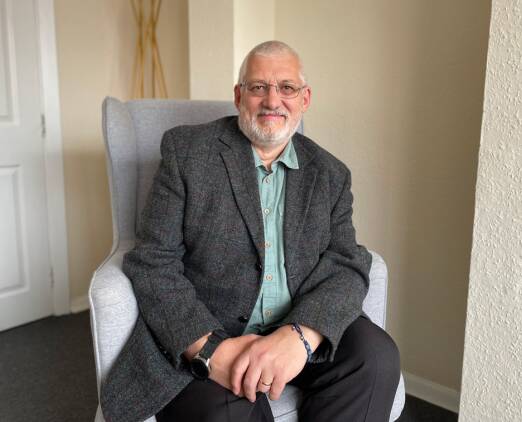What is Counselling?
Everyone can benefit from counselling. Talking can help you to explore your concerns, thoughts and feelings and improve your mental health. You may feel that what you’re experiencing isn’t serious enough to get help or feel unsure about the kind of support counselling can offer. But anyone can benefit from becoming more aware of how they see the world and why. My role is to help you express your thoughts and feelings and explore what comes up when you do, by listening and providing a non-judgmental space so you can feel heard and understood.
What can Counselling help with?
You don’t need to be in crisis or have a diagnosed mental illness to have Counselling. It can help you with emotional or mental health problems, including everything from anxiety to grief, abuse to self-harm. It can help you to achieve a specific goal or overcome a challenge. Counselling can help you understand yourself better and fulfil your potential.
What does Counselling feel like?
It’s different for everyone. Counselling is a safe place to let your feelings out and share what’s on your mind. It can be a relief to talk about something that you have been bottling up. When someone who understands really listens to you, without judgement, it can be very powerful. Feeling heard, seen and understood can be very moving. You might find yourself crying, getting upset or angry in therapy or between your sessions. This can feel unsettling and intense; I will help you to process and cope with the emotions that come up.
Does Counselling work?
Yes. In addition to the personal testimonies of millions of people around the world who have been helped by Counselling, there is a large body of evidence to show that person centred therapy is effective in addressing most mental health issues, including depression, anxiety, substance use problems, and what are often diagnosed as 'personality disorders'.
How does Counselling work?
The idea is for you to have the opportunity to explore the issue or concern you want to work on. Some ways support you to talk generally about your feelings, behaviours and thoughts. Other ways I will have specific exercises to help you do this. By exploring these different approaches, we can decide which best suits you.
Will I be given advice?
I will listen, and ask questions, but won’t tell you what to do. This might feel difficult to begin with. But I am there to support you to open up and guide the process. Sometimes just talking about your problems will help you see them in a different light and bring up new ideas you may not have considered.
How many sessions will I need?
Person-centred Counselling can be short or long term. The number of sessions you have will depend on you, the type of therapy and depth and complexity of the issues you want to work on. It’s unusual for therapy to last for less than six sessions. Some may continue for two years or more.
Can my sessions be in person, online or over the phone?
This is entirely up to you, I am qualified to work online or over the phone, and I run in-person session all day Thursday and Saturday mornings. Regardless of how the therapy is delivered, I am committed to adhering to the BACP code of ethics.
Where can I get help urgently?
Call 999 or go to your local accident and emergency department if someone's life is at risk – for example, they have seriously injured themselves or taken an overdose. Or if you don’t feel you can keep yourself or someone else safe. You can find a local NHS urgent mental health helpline here. Or try calling 111 and asking for an urgent GP appointment. You could also contact the Samaritans, a charity which offers a free confidential listening service run by volunteers to anyone in distress 24 hours a day. Call 116 123 or email jo@samaritans.org
How do I complain?
If it feels okay to do so, please try to talk to me about your concerns. This would give me a chance to put things right. If you don’t feel comfortable talking about your concerns, you can contact the BACP, who will listen to you and take your complaint seriously.
Why is the service called Chameleon Counselling?

Colin the Chameleon (pictured right) sits with me on my desk and has been with me through all my therapeutic training and since the inception of Chameleon Counselling.
If there is one thing that we know about chameleons, it is their ability to change colour.
Until recently it was thought that they did this to camouflage themselves, however new research has found that chameleons change colour based on their emotions. In a relaxed state, they appear green or brown. When they’re excited or agitated they turn red and yellow. When chameleons are feeling submissive, they’ll turn a darker colour.
Just like a chameleon’s skin, our ways of thinking and our emotional responses can change. This neuroplasticity means that we can learn, change and develop different responses at any time in our lives. And whatever has happened to us in the past does not need to affect our future.
For me the chameleon represents our ability to learn to understand our sensations and feelings, and to move forward with a better idea of our emotional selves.
By talking in a safe and nonjudgemental environment we can begin to accept ourselves as we are. By recognising our emotions and learning to deal with them in a healthy way we can find our way to our best and more contented life.




